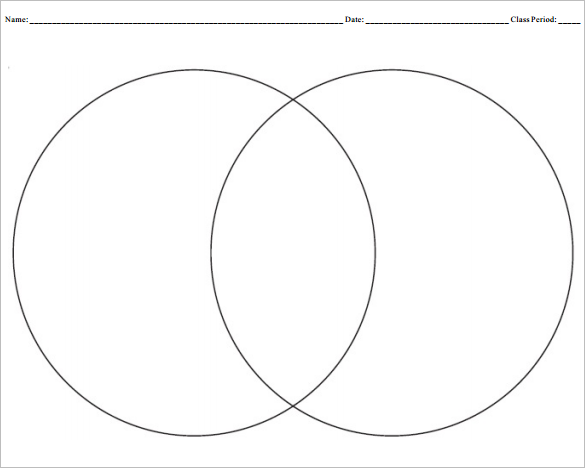Dear Parents/Carers,
Within the next few weeks, we will be beginning a unit designed to teach the students about citizenship, in the context of Australian history. The beginning lesson of the unit will involve a think, pair, share activity about various days/weeks celebrated in Australia. After brainstorming the various days/weeks the students have provided, the focus of attention will be on Australia Day. Each student will complete a KWL chart. Taking notes in the ‘K’ column about what they think they already know. Then completing the ‘W’ column about what they want to know at the end of the unit of work. I will model for the students how to turn the notes from the ‘W’ column into inquiry questions for investigation. Students are using the inquiry skill of questioning by completing this (ACARA, 2017). At the completion of the unit of work, students will complete the ‘L’ column about what they have learned throughout the process.
 |
| (Ausflag, 2018) |
Students will spend the following lessons locating and collecting information from various sources (including from the library catalogue, the Australia Day website, and various news articles). Taking note of how the celebration began, what the differences are between past and present, and how the celebration affects groups of people differently (particularly Aboriginal peoples). You can support your child’s learning by aiding and providing resources outside of school hours. It would also be helpful if we could have some parents volunteer to present their point of view to the class. Through the examination of this information, students will develop their ability to distinguish facts and opinions as well as respecting different points of view. This information will be presented to the whole class for the students to reflect on. By reflecting on past events, students will compare this with the present day situation. Allowing them to propose actions to the issue.
 |
| (Ausflag, 2018) |
Assessment tasks allow me to monitor the progress of students and guide them in improving their learning (Gilbert, 2017a). Additionally, students can use the feedback provided by me to evaluate their efforts to make changes for future tasks (Gilbert, 2017a). The assessment task for this unit of work will involve students arguing for or against changing the name and/or date of the celebration of Australia Day. Once the students have compiled their arguments, the class will participate in a mock vote as to whether the name/date should be changed. Democracy can be a difficult topic to understand so having students participate in their real-world environment can help to make the concept more concrete (Gilbert, 2017b).
| (Australian Curriculum, Assessment and Reporting Authority [ACARA], 2017) Remember you can click on the image to enlarge. |
Through History, students critically analyse and compare evidence. Contributing to the students’ ability to be active and informed citizens (ACARA, 2009). Civics and Citizenship Education develops students’ abilities to participate democratically (ACARA, 2012). This aligns with Goal 2 of the Melbourne Declaration on Educational Goals for Young Australians.
 |
| (Ministerial Council on Education, Employment, Training and Youth Affairs [MEETYA], 2008) |
 |
| (ACARA, 2017) |
Regards,
Mr Hudson.
References
Ausflag. (2018). Australian National Flag [Image]. Retrieved from http://www.ausflag.com.au/
Australian Curriculum, Assessment and Reporting Authority [ACARA]. (2009, May). Shape of the Australian Curriculum: History. Retrieved from www.acara.edu.au
Australian Curriculum, Assessment and Reporting Authority [ACARA]. (2009, May). Shape of the Australian Curriculum: History. Retrieved from www.acara.edu.au
Australian Curriculum, Assessment and Reporting Authority [ACARA]. (2012, October). The Shape of the Australian Curriculum: Civics and Citizenship. Retrieved from www.acara.edu.au
Australian Curriculum, Assessment and Reporting Authority [ACARA]. (2017). The Australian Curriculum: Humanities and Social Sciences (Version 8.3), Year 3. Retrieved from www.australiancurriculum.edu.au/download?view=f10
Gilbert, R. (2017a). Assessment for student learning. In R. Gilbert & B. Hoepper, Teaching humanities and social sciences: History, geography, economics and citizenship in the Australian curriculum (6th ed, pp. 103-125). South Melbourne: Cengage Learning Australia Pty Limited.
Gilbert, R. (2017b). Developing language and literacy. In R. Gilbert & B. Hoepper, Teaching humanities and social sciences: History, geography, economics and citizenship in the Australian curriculum (6th ed, pp. 150-177). South Melbourne: Cengage Learning Australia Pty Limited.
Ministerial Council on Education, Employment, Training and Youth Affairs. (2008). Melbourne Declaration on Educational Goals for Young Australians. Retrieved from http://www.curriculum.edu.au/verve/_resources/National_Declaration_on_the_Educational_Goals_for_Young_Australians.pdf

Nice work Jesse,
ReplyDeleteSome good strategies/activities used in this one, 'think, pair, share', `KWL, etc.; great for engaging and extending, having students decide what they would like to know is great. Visually, I think a couple more images might be relevant, perhaps Australian and Aboriginal flags for example. I also think that you could possibly get parents more actively involved in this one, perhaps by inviting them to a round table discussion, or just through presenting some different points of view to the class. Overall though, a topical and relevant subject that really needs to be considered by all Australians.
Cheers,
Matt.
Hi Matt,
DeleteThanks for your comments. Really helpful stuff.
Cheers.
Hi Jesse,
ReplyDeleteYou have provided some great material regarding the strategies and activities you provide regarding the content. It really shows how beneficial this subject is to a child's development in the Melbourne Declarations Goals.
Visually, it is clearly presented. The images however do not appear and display an error sign. Your content really highlights the content well, but I believe these images assist the point you are putting across. I hope you get it fixed!
I really like the new piece about parent involvement. You have explained it well and highlighted key educational improvements the parent assistance makes in the child's learning.
Great Blog Jesse,
Kind Regards
Haydn Robertson
123670